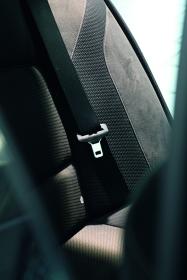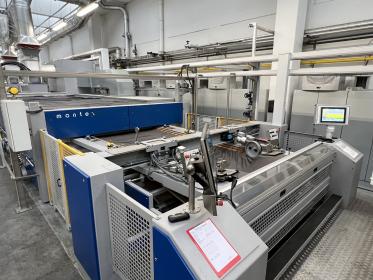Oerlikon Polymer Processing Solutions at the Techtextil India 2023
At this year’s Techtextil India, the Polymer Processing Solutions Division of the Swiss Oerlikon group will be presenting the trade audience with new applications, special processes and sustainable solutions focusing on the production of industrial textiles. Between September 9 and 12, the discussions at Jio World Convention Centre (JWCC), Mumbai, will be concentrating on airbags, seat belts, tire cord, geotextiles, filter nonwovens and their diverse applications.
More polyester for airbags
The yarns used in airbags are made predominantly from polyamide. As a result of increasingly diverse airbag applications and also the increasing size of the systems used, polyester is today used as well, depending on the application requirements and cost-benefit considerations. Against this background, the Oerlikon Barmag technol-ogies make an invaluable contribution. In addition to high productivity and low energy consumption, they particularly excel in terms of their stable production processes. Furthermore, they comply with every high quality standard for airbags, which – as in the case of virtually all other textile products used in vehicle construction – must provide the highest level of safety for vehicle occupants - without any loss of function in any climate and for the lifetime of the vehicle
Buckle up!
Seat belts have to withstand tensile forces in excess of three tons and simultaneously stretch in a controlled manner in emergencies in order to reduce the load in the event of impact. A seat belt comprises approximately 300 filament yarns, whose individual, high-tenacity yarn threads are spun from around 100 individual filaments. “With our unique, patented Single Filament Layer Technology, we offer a sophisticated and simultaneously gentle high-tenacity (HT) yarn process for manufacturing these lifesavers and other applications made from industrial yarn”, explains André Wissenberg, Head of Marketing.
Road reinforcement using geotextiles
Low stretch, ultra-high tenacity, high rigidity – industrial yarns offer outstanding properties for the demand-ing tasks carried out by geotextiles; for instance, as geogrids in the base course system under asphalt. Normally, geotextiles have extremely high yarn titers of up to 24,000 denier. Oerlikon Barmag system concepts simultaneously manufacture three filament yarns of 6,000 denier each. Due to the high spinning titers, fewer yarns can be plied together to the required geo-yarn titer in a more cost- and energy-efficient manner.
hycuTEC – quantum leap for filter media
In the case of its hycuTEC hydro-charging solution, Oerlikon Neumag offers a new technology for charging nonwovens that increases filter efficiency to more than 99.99%. For meltblown producers, this means material savings of 30% with significantly superior filter performance. For end users, the consequence is noticeably improved comfort resulting from significantly reduced breathing resistance. With its considerably lower water and energy consumption, this new development is also a future-proof, sustainable technology.
Oerlikon Textile GmbH & Co. KG












